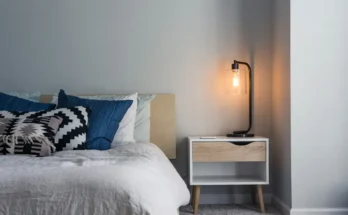I never thought I would return to my childhood home in Maryland, especially not after Mom passed. At 32, I had to face the big, creaky house, which had sat empty for five long years after Dad died and Mom moved closer to me in New York. The emotional weight was crushing; I had to decide whether to sell it, renovate it, or rent it out. Arriving on a gray Saturday morning, I unlocked the front door and was instantly hit by that familiar, heavy scent of aged wood, dust, and a trace of my mother’s old perfume, an almost unbearable reminder of the life we once shared here.
I tried to ground myself by boiling water for tea in the dusty kettle. As I wandered through the rooms, mentally cataloging the work that needed to be done, the house seemed eerily silent—until it wasn’t. Standing by the kitchen window, cradling my warm mug, I heard a heavy thump followed by a distinct, pained sound: “Ouch!” My heart seized. Was it a raccoon, or was someone actually in the house? My pulse raced as I grabbed my phone and a flashlight. “I’m coming down,” I called out, feigning confidence. “And I’ve called the police, so you should probably leave!”
The wooden basement stairs groaned beneath my weight as I slowly descended into the pitch-black space. When I finally found the pull string and the overhead bulb flickered on, I screamed. A man was sprawled on the dusty concrete floor near the far wall, clutching his leg in agony. He yelled back, identifying himself as Henry, and frantically apologized, insisting he hadn’t damaged or stolen anything. As I stared at his unnaturally bent leg, Henry confessed he’d been staying there, but quickly pointed out that he had taken care of the place, having fixed the kitchen sink leak and replaced rotted porch boards as a form of “rent.”
My shock gave way to a wave of strange sympathy. Henry was clearly in immense pain, and his desperate fear felt painfully real. I thought of my late mother and her unconditional kindness—her volunteering, her helping strangers. Realizing this man was genuinely hurt, I decided what I had to do. Ignoring his shouts that he had no money or insurance, I called an ambulance. “That leg needs medical attention,” I said firmly, overriding his panic. When he protested about the cost, I cut him off: “Then I will pay for it.”
During the ride to the hospital, Henry, still in disbelief, finally asked why I was helping him. I simply said, “Because someone should.” The doctor confirmed the fracture was severe, requiring surgery and a long recovery. When Henry admitted he had nowhere to go, I made an impulsive decision: “He’ll stay at my house.” Over the following weeks, Henry opened up. He was a high school English teacher who lost his job, his fiancée, and his apartment within weeks, ending up homeless. My heart broke learning how quickly his life had spiraled.
The next few months truly changed everything. I helped Henry heal, worked with him on his resume, and drove him to interviews. He soon landed a substitute teaching position. One evening, he insisted on repaying me for the hospital bills and his stay. He proposed buying the house in installments, a plan that meant the home would go to someone who genuinely appreciated it and had already been caring for it. I agreed, realizing I was giving Henry a second chance. Three years later, Henry married Amelia, bringing new, loving life back into the old house that had once saved him.


